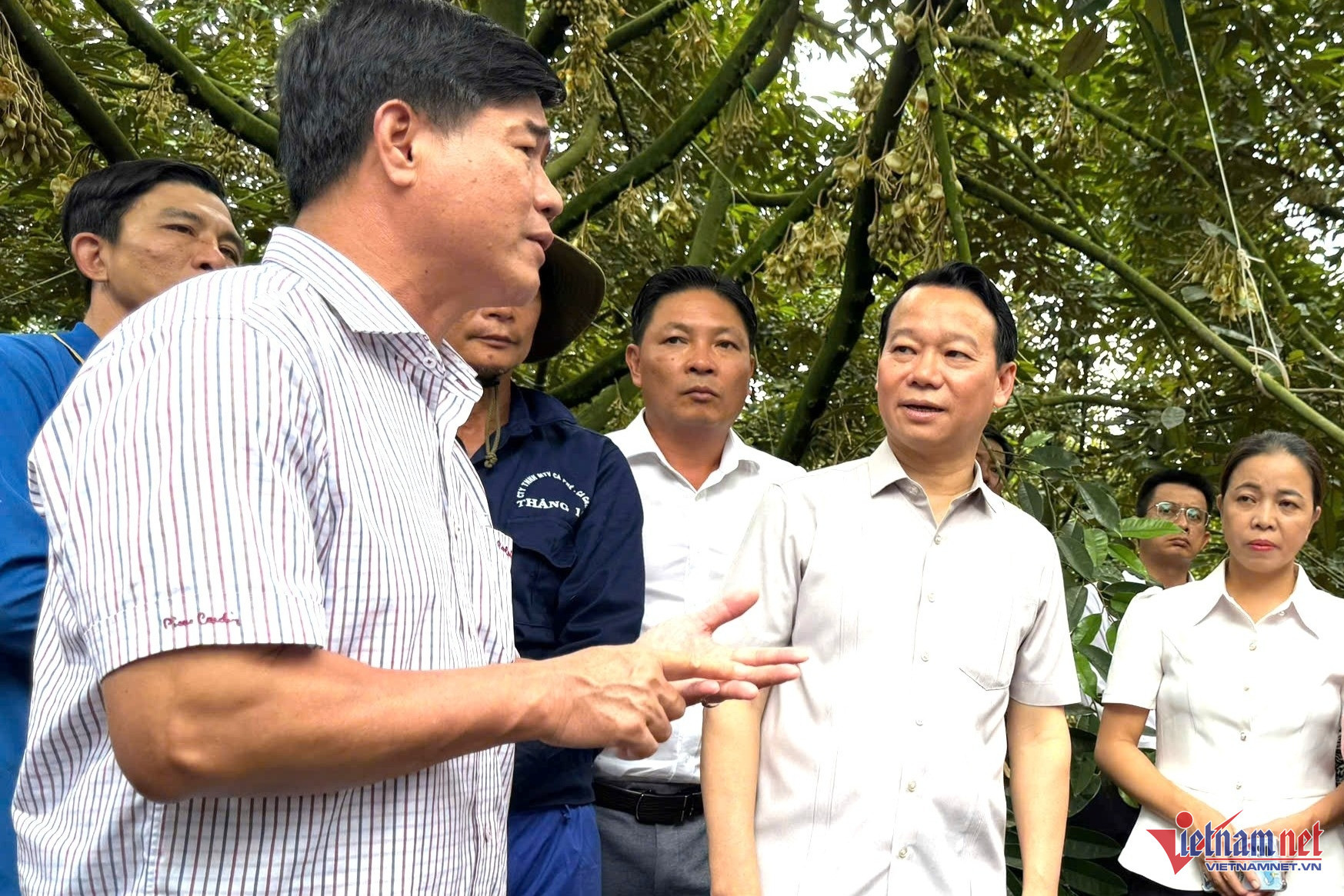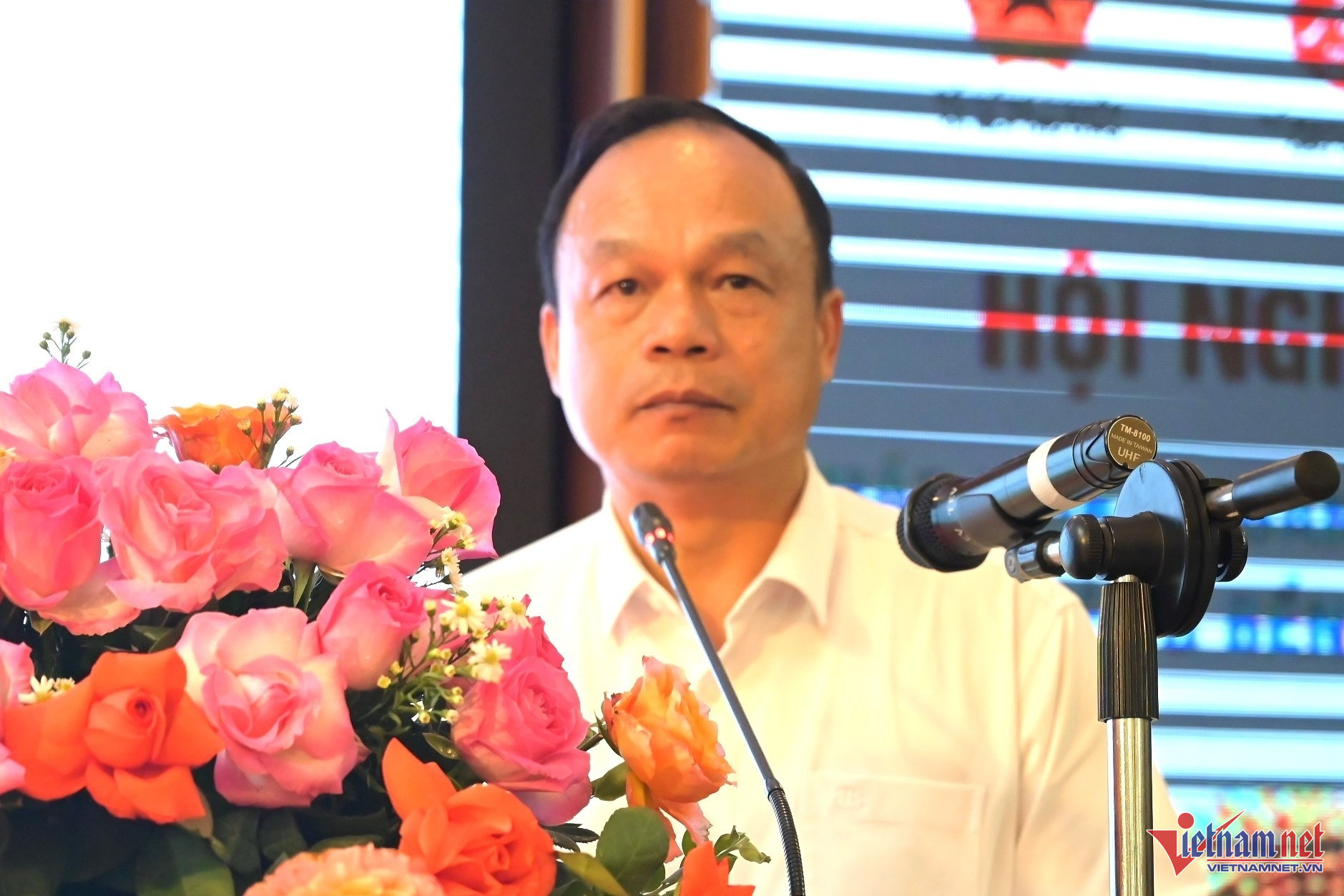On May 24, the Ministry of Agriculture and Environment and the People's Committee of Dak Lak Province held a conference titled “Sustainable development of the durian industry” to review production and export trends, assess challenges, and propose long-term sustainable solutions for the sector.
“Overheating” growth brings risks

At the conference, Minister of Agriculture and Environment Do Duc Duy noted that in under a decade, Vietnam's durian sector expanded dramatically - from 32,000 hectares in 2015 to nearly 180,000 hectares in 2024, a nearly sixfold increase.
By 2024, production surpassed 1.5 million tons, making durian one of Vietnam’s fastest-growing fruit exports.
However, the Minister stressed that alongside these achievements, the sector now faces numerous challenges. Unchecked “hot” growth without proper planning or management tools carries significant risks.
In the first four months of 2025, the industry saw a sharp drop in both export volume and value, directly affecting Vietnam’s broader 2025 agricultural export targets and hurting profits for farmers and businesses alike.
According to the Minister, this decline signals a concerning imbalance between production growth and the domestic sector’s organizational capacity - especially in meeting increasingly stringent international quality standards.
“If we fail to implement timely, systematic, and coordinated management measures, we’ll face a negative cycle: oversupply, price drops, market losses, and - more seriously - a loss of customer confidence and national reputation. This would damage the long-term sustainability of Vietnam’s fruit exports,” warned Do Duc Duy.
Duong Mah Tiep, Vice Chairman of Gia Lai Province’s People's Committee, shared that local durian production is still fragmented, with limited access to technology. The supply chain remains weak, and only a small number of growing areas have been granted export codes.
Gia Lai officials proposed stricter regulations on code issuance violations for planting zones.
These are also issues in Dak Lak - Vietnam’s largest durian-producing province. Acting Chairman Nguyen Thien Van acknowledged that limited application of advanced technology has resulted in inconsistent fruit quality. Moreover, pesticide and ripening chemical options remain limited.
Durian exports mostly involve raw products, offering low value-added returns and lacking sustainability.
Van added that food safety violations and improper use of planting and packing codes have negatively impacted the durian brand for both Vietnam and Dak Lak.
“To boost exports and meet import requirements, we must urgently improve the legal framework, standards, processes, and procedures for this fruit,” he emphasized.
Testing costs skyrocket

Vu Phi Ho, Chairman of Tay Nguyen Durian JSC, said many growers lack knowledge of residue control techniques, especially for cadmium - a growing concern for export compliance. Limited certified planting areas add pressure on processing capacity and contract fulfillment.
He also noted that inconsistent use of fertilizers and pesticides across regions leads to uneven durian quality.
Ho and other businesses voiced concern over soaring testing costs. While testing a container in 2024 cost just VND 250,000–300,000, this year’s quotes have surged to VND 35–40 million (about USD 1,400–1,600).
“We propose allowing businesses to conduct their own testing and take full responsibility for product quality. We also recommend increasing the number of accredited testing centers in Dak Lak and other durian hubs to facilitate transparent and efficient exports,” Ho said.
In the first four months of this year, Vietnam’s durian exports reached only USD 130 million - far below the USD 500 million achieved in the same period last year. The drop is largely due to China tightening its phytosanitary regulations and setting stricter limits on heavy metals like cadmium and active substances such as carbendazim and propiconazole.
Urgent call for durian testing lab in Dak Lak
After a proposal from Vinacontrol Quality Inspection Co. Ltd. to establish a durian testing lab in Dak Lak, Minister Do Duc Duy immediately agreed and called on the provincial government to support legal procedures, land allocation, and other formalities.
Tran Minh Chau, Deputy Director of Vinacontrol, told VietNamNet that the company is currently testing cadmium levels in durian. Many major growing areas still lack designated testing labs, creating serious barriers for growers and exporters to meet import standards.
Vinacontrol plans to set up testing systems in various provinces, including Dak Lak, and hopes for close cooperation from the Ministry and local authorities.
“We’re considering two options: a satellite lab for faster deployment, or a designated lab, which requires more time for licensing and capacity evaluation,” Chau said.
Hai Duong